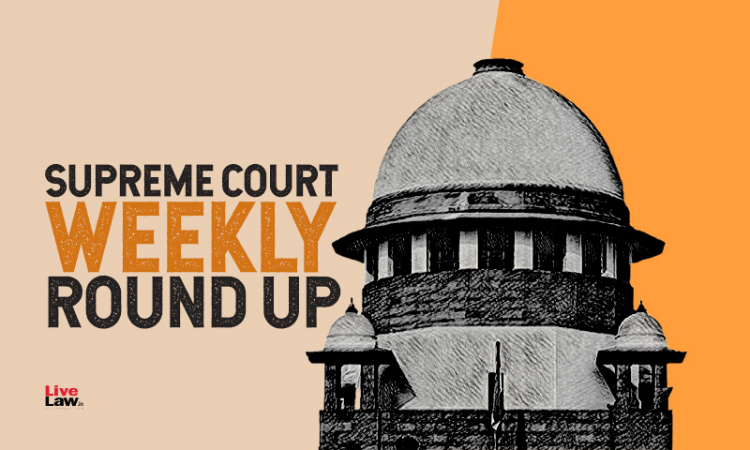Supreme Court Weekly Round Up September 13 To September 19, 2021
Nupur Thapliyal
19 Sept 2021 10:10 AM IST

Next Story
19 Sept 2021 10:10 AM IST
JUDGMENTS THIS WEEK1. Unilateral Cancellation Of Registered Sale Deed Can't Be An Anticipatory Bail Condition: Supreme CourtCase: Syed Afsar Pasha Quadri v The State of TelanganaCitation : LL 2021 SC 474The Supreme Court has observed that a registered sale deed cannot be cancelled unilaterally by one party to the said document in purported compliance of the direction given by the High...
